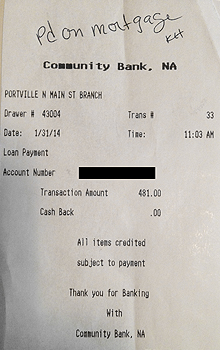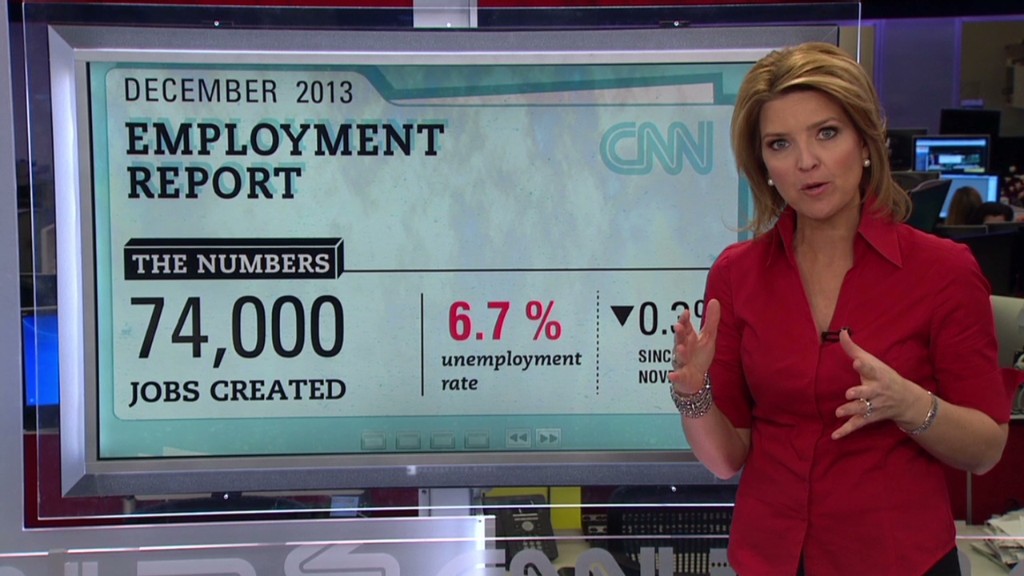
Unemployed worker Jean Winsor was close to breaking point after her jobless benefits expired at the end of December.
She wore extra layers to keep warm in a bid not to run up her electricity bills and contemplated selling her living room furniture to make her monthly mortgage payment of $481.
 |
| A copy of the mortgage receipt. |
That's when hope came calling in the guise of CNNMoney reader Lee Bissell, who read about her plight and offered to pay Winsor's mortgage for a month. CNNMoney first wrote about Winsor in December, when she was among a million Americans who lost jobless benefits.
Bissell is not a millionaire with thousands of dollars to spare. In fact, she is a federal worker living in Herndon, Va. supporting a sick husband, a 15-year-old daughter and an 8-year-old son.
What resonated with Bissell was that Winsor had worked as a home health care aide for 12 years before losing her job.
Related: Life without benefits gets tougher for jobless
Bissell's 64-year-old husband is struggling with end-stage dementia, and aides like Winsor have been a godsend.
Bissell wanted to express her gratitude by helping one health care aide in need.
"I don't know that I can do it again. But in that moment, it felt right," said Bissell. "I feel really blessed I can do something like that and not worry about paying my own bills."
Winsor dissolved into tears when she heard Bissell wanted to help. She hasn't been able to find work after losing her job a year ago in Shinglehouse, Pa.
Winsor sent Bissell a thank you card with a copy of her receipt to express how grateful she was and also to attest that she used the check to pay for her mortgage.
"It made me feel like a heel in one sense and very blessed in another," Winsor said.
Winsor is among more than 1.6 million jobless Americans entering their sixth week without federal benefits.
It has meant really tough choices for the long-term unemployed. Winsor borrowed money from a friend to pay car insurance in January. Last week, she borrowed a car from another friend to get to the grocery store, because she couldn't afford to fuel up her own car.
Extended federal benefits expired the week of Dec. 28. The program first went into effect during the recession, in June 2008. Benefits were put in place to help unemployed workers who couldn't find jobs and whose state unemployment insurance had run out.
Back then, the jobless rate was 5.6%. It later climbed to more than 10% in 2009, and the government extended or expanded the federal benefits 11 times into the weak recovery, most recently in January 2013.
Related: Why do Republicans oppose unemployment benefits?
Members of Congress have attempted to extend benefits over the past several weeks but haven't been able to get enough support.
Federal worker Bissell was hopeful that Congress would step up its compassion for the struggling jobless and extend federal jobless benefits.

But she's also concerned that people who work in critical areas like home health care are not able to earn a decent living wage.
"I just feel like we should be taking care of the people who will be taking care of us," Bissell said, referring to the aging of the baby boomer generation.


